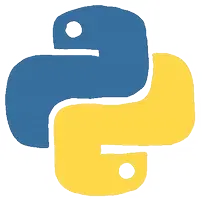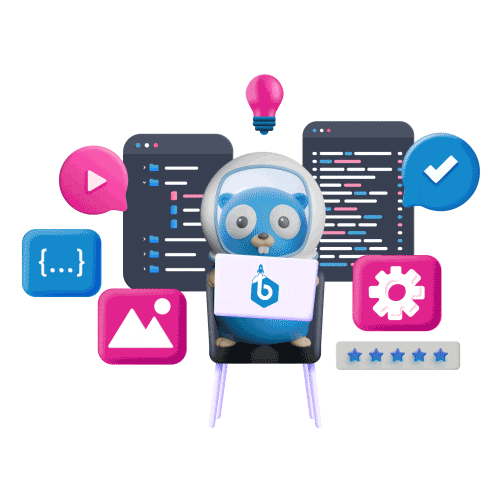
Explore a common query for those eyeing a career in DevOps or cloud engineering: "Is coding a prerequisite?" Before delving into the answer, we first dissect the core responsibilities inherent in each role. Join us as we navigate the crucial considerations for aspiring professionals in these dynamic fields.
Role of a DevOps Engineer
In the realm of software development, collaboration between two pivotal teams is paramount: developers and operations. Developers focus on crafting and enhancing software, while operations teams handle the deployment and maintenance aspects. However, these teams often diverge in priorities and methodologies. Developers prioritize rapid feature integration, while operations teams emphasize the software's reliability and stability.
Enter DevOps engineers, serving as the crucial link between these two factions. Their primary objective is to narrow the gap, achieved through the implementation of automated systems and processes. Through automation, tasks such as testing, building, and deploying software updates are streamlined, significantly expediting the development process.
Consider a scenario where a company regularly releases monthly software updates. Without automation, the development team would be burdened with manually testing and deploying each update, potentially leading to delays and errors. DevOps engineers step in to implement automated testing and deployment processes, revolutionizing the release cycle. This empowers the development team to roll out updates swiftly and with enhanced confidence.
In essence, a DevOps engineer serves as a vital bridge between these two distinct worlds, fostering collaboration and cohesion. Their role is instrumental in making the software development lifecycle seamless and efficient.
Role of a Cloud Engineer
Cloud engineers play a crucial role in designing, implementing, and sustaining cloud-based infrastructure and services. Working across diverse platforms like Amazon Web Services (AWS), Microsoft Azure, and Google Cloud Platform (GCP), their primary objective is to ensure the seamless and secure operation of cloud environments.
Key responsibilities of cloud engineers encompass:
1. Setting up Cloud Infrastructure:
Configuration of servers, networking, and security parameters.
Ensuring the seamless integration of components for optimal functionality.
2. Deploying and Managing Cloud-Based Services:
Deployment and management of a range of services, including web applications and databases.
Ensuring scalability, proper setup, and cost-effective performance of these services.
3. Automation of Processes:
Utilizing automation tools to streamline the deployment of cloud infrastructure and services.
Enhancing speed, reducing errors, increasing efficiency, and bolstering overall reliability through automation.
In essence, cloud engineers leverage a variety of cloud platforms and tools to guarantee the reliability, flexibility, and security of cloud-based infrastructure and services. Their multifaceted role involves intricate setup, meticulous management, and the implementation of automation to drive efficiency and mitigate potential issues.
Does Coding Help?

In the contemporary landscape, information technology has evolved into an indispensable aspect of our daily lives. Computers play a pivotal role in facilitating communication, entertainment, and work-related tasks. In this era, the proficiency in coding has emerged as a vital skill, offering benefits across diverse fields, even for those not directly involved in technical disciplines.
Coding proficiency can yield several advantages, such as:
1. Task Automation:
Coding enables the automation of repetitive tasks, freeing up valuable time for other pursuits. Writing programs to execute routine functions enhances efficiency and allows for a focus on more critical activities, such as problem-solving or creative ideation.
2. In DevOps and Cloud Engineering:
Coding skills provide a significant advantage in the realms of DevOps and cloud engineering. Understanding code facilitates enhanced collaboration with developers, fostering smoother project coordination and superior outcomes.
3. Clear Communication of Technical Requirements:
A grasp of coding language empowers individuals to articulate technical requirements with precision, leading to clearer communication within the team. This clarity helps prevent misunderstandings and minimizes the risk of costly errors.
4. Effective Troubleshooting:
Proficiency in coding accelerates the identification and troubleshooting of issues related to infrastructure and applications. This proficiency translates to reduced downtime, as problem-solving becomes a more streamlined and efficient process.
5. Custom Workflow Creation:
Coding proficiency empowers individuals to craft custom workflows tailored to specific needs. This customization not only saves time but also minimizes errors, resulting in a more efficient and effective work process.
In essence, the ability to code extends beyond traditional technical domains, proving invaluable in optimizing workflows, enhancing collaboration, and addressing challenges effectively across various professional landscapes.
Programming Language to Learn?
Understanding the immense utility of coding naturally leads to the question: which programming language should one learn? Among the multitude of programming languages, two stand out prominently for DevOps and cloud engineering: Python and Go.
Python:

Overview:
A widely-used general-purpose programming language in the tech industry.
Renowned for its simplicity and easy-to-read syntax, making it beginner-friendly.
Appreciated by both novices and experienced developers for its clean and readable code.
Versatility:
Used across diverse fields, including scripting, web development, data science, and machine learning.
Abundance of libraries and tools available, providing comprehensive support for various tasks.
Learning Resources:
· Excellent learning resources are available, such as the Certified Entry-Level Python Programmer course from KodeKloud.
Go (Golang):

Overview:
Created by Google in 2009, Go has gained popularity, especially in DevOps.
Many prominent DevOps tools like Docker and Kubernetes are written in Go.
Key Features:
Fast build and startup times, contributing to efficient development workflows.
Built-in concurrency support, enabling effective handling of parallel tasks.
Garbage collection ensures efficient memory management.
Cross-platform compatibility, suitable for various operating systems and hardware architectures.
Learning Resources:
KodeKloud offers a comprehensive course to kickstart your journey into Go programming.
Whether opting for the versatility and readability of Python or the efficiency and power of Go, both languages offer unique advantages in the dynamic fields of DevOps and cloud engineering. The choice may depend on individual preferences, project requirements, and the specific landscape of the technology being employed. Explore these languages with the aid of reputable courses, and embark on a rewarding journey in the world of programming.
Conclusion
In short , while coding is not mandatory for success in DevOps or cloud engineering, it undeniably serves as a potent tool for enhancing capabilities and standing out in a competitive landscape. The versatility gained from coding skills allows professionals to automate tasks, collaborate more effectively, and contribute to more efficient workflows. Striking a balance between coding proficiency and other essential skills can position individuals as adaptable and valuable contributors in the dynamic fields of DevOps and cloud engineering.
